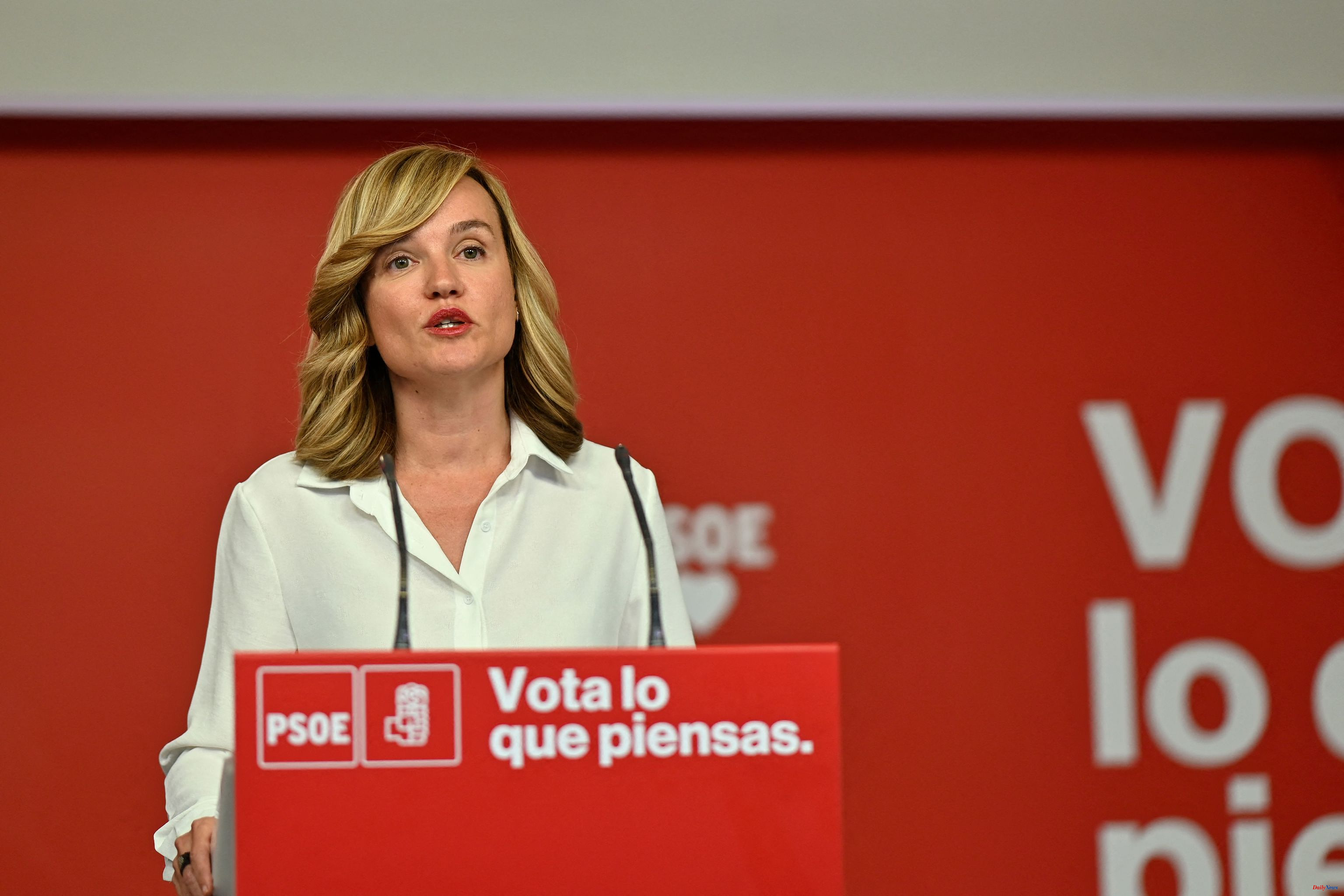The Minister of Education, Pilar Alegría, has taken the decision this Wednesday to paralyze the approval of the decree that regulates the new Selectividad, which was to be held for the first time in June of next year. Sources from her department have explained that it is "a gesture of responsibility" so as not to generate uncertainty in the face of a "dissolved government" after Pedro Sánchez's electoral advance. The new model has generated a lot of criticism and, although the initial approach had been modified (the controversial maturity test that merged subjects and a set of multiple choice questions), the rectors did not fully see the new changes.
This morning there was a meeting between the Ministry and a representation of the Conference of Rectors of Spanish Universities (CRUE) where Alegría's team explained that the new Selectividad "is not postponed", as the 50 Spanish public universities had requested , as advanced by EL MUNDO. What they do is leave it "stored in a drawer, finished so that the new government, be it PSOE or PP, can approve it in the first Council of Ministers of the new legislature, if it considers it so."
The sources of the Ministry consulted explain that "the decree cannot be postponed because the Lomloe forces the new Selectividad to be applied in the course that comes into force 2nd of Baccalaureate", which is 2023/2024; that is to say, the course that comes.
In other words, whoever governs after the debacle of 28-M should regulate a new system of access to the university, with its corresponding decree, if they want to comply with the law. If the PSOE does so, they will approve the decree that was practically finished, pending the report from the Council of State. If the PP does it, they will have to start over, because this party has promised to carry out a single test in all of Spain to reduce the existing inequalities between regions.
The Secretary of State for Education, José Manuel Bar, requested a report last Monday from the legal services of the Ministry to see if they could approve this draft royal decree in the current circumstances and these services have recommended that they not do so. Alegría's intention, in any case, was to go ahead with the decree despite the criticism it has provoked.
The norm has been jinxed from the beginning. The Government presented a first draft a year ago that involved a "considerable reduction" in content, according to complaints from language teachers, the RAE, the Institut d'Estudis Catalans or philosophers. The subjects of Spanish Language, Foreign Language, Co-official Language, History of Spain and History of Philosophy were put together in a "maturity test" that included many test-type questions or to be answered in a maximum of two paragraphs. The exam was considered "a joke" by a good part of the teaching staff.
Faced with criticism, Alegría agreed in December to postpone the final implementation phase of the test, from June 2027 to June 2028, but left the transitional phase as initially planned, starting in June 2024 with the first of the new exams. Of course, he suppressed this controversial maturity test, which remained in the air.
Afterwards, the text has continued to change and there is no longer a trace of that maturity test or of the peculiar test format. Alegría relented and returned almost completely to the current system, but with added problems. For example, the duration of the test was extended, which caused the examination period to be extended to more than a week, with the consequent organizational obstacles. In addition, by putting more guarantees for the students in the revision, this would generate more difficulties for the teachers who correct.
The composition of the qualifying courts was also in question, where it was imposed that, in addition to university professors, there should be 40% of institute officials specializing in each subject at a time when there are not officials in all subjects. This wording could lead to students "challenging in court" the exam when all the regulated requirements were not met.
The vice-chancellors in charge of this matter have expressed their discomfort that the Ministry had not counted on them in the negotiation and all these details had been ignored. La Crue, for her part, adopted a pusillanimous role, avoiding speaking out. 50 public campuses wrote a letter in which they warned that it was impossible to start in the 2023/24 academic year, as it appears in the draft of the royal decree, and they were already beginning to study taking more forceful measures.
The Artistic Education Law, which was going to be approved by the Education Commission of Congress this week, also falls. "The next legislature will have to start from scratch, whoever governs governs," they say in the Ministry, where on Monday they had doubts about whether pending decrees such as the one on Selectivity could be approved or it was better to wait. Now they have it clear: they will not get them out.
The reform of the teaching career to improve the quality of teachers, the most important of all educational measures and the first that the Ministry of Education should have undertaken, also remains in a drawer.
According to the criteria of The Trust Project












